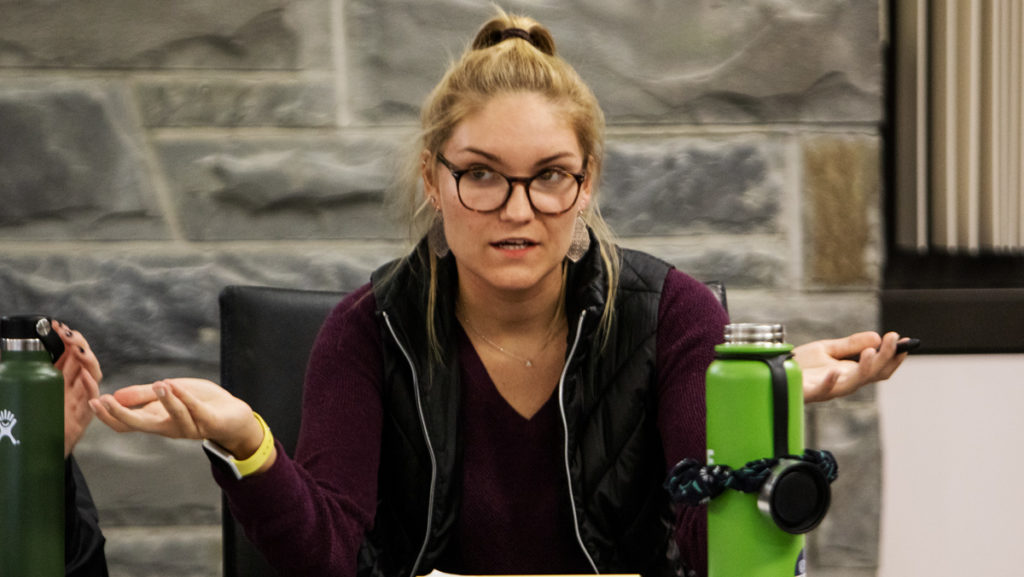The Ithaca College Student Governance Council Appropriations Committee partnered with the Office of Energy Management and Sustainability to meet with editors of campus publications to discuss how they can be more sustainable.
On-campus magazines Embrace, Buzzsaw Magazine and Passion Project were at the SGC Appropriations Committee meeting Oct. 9 to decrease the number of issues they print of their publications.
Junior Allison Kelley, SGC vice president of business and finance, said she wanted to start a conversation about sustainability with the people who are in charge of the on-campus magazines.
“We’ve seen so many organizations come in asking for between 800 and 1,500 copies of these magazines and publications,” she said. “We just wanted to start having the conversation about how can we be more sustainable. If people are actually reading all 1,500 copies, that’s great. But if they’re not, how can we be more sustainable? Is there a way to limit it, figure out a different way to produce them?”
Rebecca Evans, campus sustainability coordinator for energy management and sustainability, said publications need to track their readership and how many print publications are being picked up.
“Saying, ‘How many do you need?’ to a new publication is really, really hard to do, especially if you don’t know how many you’re printing or how often and how many are left over because I bet none of the publications here are going around and counting how many are leftover on a monthly, weekly, biweekly, whatever basis,” Evans said.
Sophomore James Baratta, upfront editor of Buzzsaw Magazine, said that after the meeting he felt more comfortable with the goals the committee had in mind.
“We’re open to change, and we want to come to the same page and compromise,” Baratta said.
Sophomore Julia Batista, social media and web editor for Buzzsaw Magazine, said sustainability had never been a focal point for the magazine, and the meeting with the committee introduced the idea to them.
“I believe that it’s totally attainable for us to figure out how many magazines we’re putting out on the newsstands and to figure out how many people are picking up and how much we’re retaining,” she said.
Batista said it will take time for the magazine to get used to printing fewer editions of its magazine.
Junior Noa Covell, web designer for Passion Project, said the publication is mostly online and uses creative marketing tactics to promote the website and organization in lieu of weekly print publications.
“For Passion Project, a lot of what we do is we have posters that promote our website and told people when our general body meeting was,” she said. “We also have a print magazine that comes out once a semester, so it’s like when people do get to see their work in print, it’s a lot more meaningful that it’s handheld.”
Covell said she thinks this strategy has been successful for Passion Project and keeps people engaged while also saving paper.
Junior Yetunde Smalls, coeditor-in-chief of Embrace, said if the SGC funded websites for online publications, it would help publications be more sustainable because online content could supplement a physical copy.
She cited a rule in the SGC Allocations Handbook that states the Appropriations Committee does not allow student organizations to receive funding for websites. Article VI of the 2019–20 SGC Allocations Handbook says, “SGC will not fund the creation, maintenance, or anything else in regards to an organization’s personal website.”
Smalls said sustainability is important, but she is concerned that a potential funding decrease will cause publications to have less recognition on campus.
Kelley said the purpose of the meeting was not to convince publications to only publish online.
“We’re not trying to force people to go online. It’s just to try to find the balance between what the number is to be printed, to be the most sustainable, as well with whatever you all do online,” she said.








